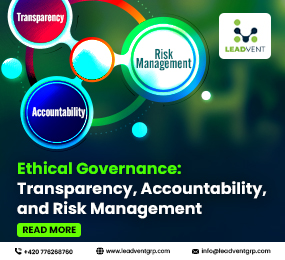ESG in Africa: Balancing Growth with Responsibility
Across the African continent, a quiet shift is gaining momentum. Environmental, Social, and Governance (ESG) principles once seen as optional or externally imposed are now becoming part of the region’s core development story. In boardrooms, policy circles, and grassroots movements alike, ESG is no longer just a framework it’s a path forward.
Africa, with its vast resources, young population, and growing economies, stands at a crossroads. The pressure to industrialize and build resilient infrastructure is real. But so is the need to do it responsibly to protect ecosystems, uplift communities, and ensure long-term governance.
Environment: A Continent on the Frontline
Africa is among the regions most vulnerable to climate change, despite contributing the least to global emissions. Rising temperatures, droughts, floods, and changing weather patterns are disrupting agriculture, displacing communities, and straining water systems.
This environmental urgency is pushing governments and businesses to think differently. Countries like Kenya, Morocco, and South Africa are leading the charge in renewable energy development. Clean energy investment is growing, not only to cut emissions but to increase access to reliable electricity particularly in off-grid communities.
Natural capital forests, rivers, biodiversity is being recognized as a valuable asset to protect, not exploit. ESG frameworks are helping shape climate adaptation strategies that are rooted in both science and traditional knowledge.
Social Impact: Inclusion at the Heart of Progress
At its core, ESG in Africa is about people. Issues of inequality, unemployment, access to education, and healthcare are not just social concerns they’re economic ones. Investors and development agencies increasingly want to see how projects benefit local communities, support gender equity, and respect human rights.
From agribusinesses that empower women farmers to fintech startups that drive financial inclusion, African innovators are building business models where profit and purpose work together. Social impact is no longer a charitable footnote it’s central to long-term growth.
Governance: Trust, Transparency, and Local Leadership
The "G" in ESG often gets the least attention but it may be the most important. Good governance builds investor confidence, supports anti-corruption efforts, and ensures that environmental and social commitments are not just promises on paper.
More African companies are integrating ESG metrics into reporting structures, guided by frameworks like the Global Reporting Initiative (GRI) or Sustainability Accounting Standards Board (SASB). At the same time, local governance systems traditional and formal are being recognized for their role in sustainable development.
This blend of modern regulation and community-based leadership could be Africa’s unique contribution to ESG practice globally.
Takeaway
Africa’s ESG journey is not a copy-and-paste from other regions it’s being shaped by its own realities, resilience, and resourcefulness. As the continent charts a path toward inclusive, sustainable growth, ESG isn’t just an agenda it’s a compass guiding development that truly serves people and the planet.
Learn more on our website: https://www.leadventgrp.com/events/esg-and-climate-africa-summit/details
For more information and group participation, contact us: [email protected]
Leadvent Group - Industry Leading Events for Business Leaders!
www.leadventgrp.com | [email protected]
















